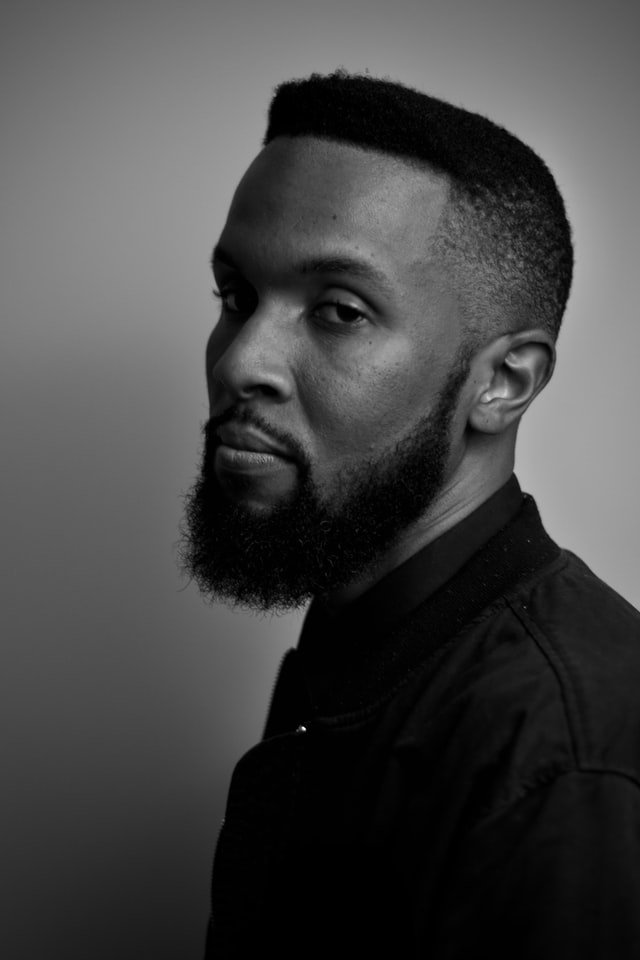This is a question that many religious people have been asking themselves lately. In the past, it was commonplace for religious individuals to wear beards as part of their religious attire.
But now, with so much attention being focused on workplace safety and company image, more and more companies are starting to say no to religious facial hair in the workplace.
Should pagans be allowed to wear a beard in the workplace? Let's take a look at some of the arguments for both sides!
What Religions Require Men to Grow a Beard?
Many religious groups require men to grow a beard, including Muslims and Orthodox Jews. Some Christians such as Amish and Mennonite men, also wear beards as part of their religious practice or beliefs.
There are many pagan religions that consider it important for one to have facial hair in order to express the person's religious identity.
Why Do Pagans Have Beards?
There are many religious reasons why people might choose to grow a beard. For some pagans, it is seen as a way of honoring the gods and goddesses.
Beards can also be seen as symbols of power, strength, and virility. Some pagans might choose to grow a beard in order to express their religious identity or beliefs.
Pagans In the News Over Facial Hair
Several pagan men have faced discrimination or have been told to change shave due to changing company laws.
Raymond Whitsel, Norse Pagan Heathen, filed a charge of discrimination with the Equal Employment Opportunity Commission in 2014, saying that he was told to shave his religious beard or be fired from a job.
Ironically, Whitsel had worked at his job as a hospital security guard for 12 years when a new employee rule went into effect stating no facial hair. He was told to shave or be fired.
As an employer, the US Military has been grappling with accommodating different religious groups in the armed forces.
In 2017, the Defense Department expanded the number of faiths covered under religious exemptions to include “atheists, agnostics, shaman, humanist and pagans”. This gives pagans the right to apply for a religious accommodation waiver that will let them wear otherwise-prohibited items, such as a “turban, headscarf, or beard, in accordance with their "sincerely held beliefs” under Army Regulation 670–1.
Sgt. 1st Class Benjamin Hopper a member of the Nevada National Guard, religious accommodation to Army Regulation 670-1 Wear and Appearance of Army Uniforms. He has been a practicing Norse Pagan for the past twenty years. sued the state in federal court, saying that his religious right to grow a beard had been violated.
You can watch a video interview of Hopper here.
More recently, in August of 2021, Airman 1st Class Braxton Comer, a practicing Norse Pagan at Maxwell Air Force Base received religious accommodation for a beard.
On a side note, The Hammer of Thor, the emblem of the Norse Pagan Faith, is authorized for military headstones.
Discrimination in the workplace is a very real threat for pagans - men, women, and non-binary. Read more in our article Challenges of Being a Pagan.
What Constitutes a Religious Belief?
In order for religious beliefs to qualify as a religious belief under Title VII, an employee must believe that:
The practice is required by his religion or mandated by his religious community and cannot be modified even if the result is discipline from their employer.
He has adopted the particular religious belief of his own free will and not because of pressure from someone else.
The religious belief is sincerely held, whether or not the employee has discussed it with others or attempted to convince other employees of its truthfulness.
In Whitsel’s case his attorney Ashlie Case Sletvold, stated, “America was founded on the principle of religious freedom. Federal and state laws guarantee Mr. Whitsel the right to practice his faith without interference from his employer. An employee should not have to choose between his faith and his livelihood.”
What kind of accommodations must employers offer with regard to religious garb and grooming?
Employers must offer religious accommodations with regard to religious garb and grooming, as long as it does not cause undue hardship for the company. This includes allowing employees to wear religious clothing or facial hair in the workplace.
If there are any concerns about health and safety, the employer can ask that the employee keep their religious attire or facial hair trimmed to a reasonable length.
What Do Companies Say About Beards?
So companies do have arguments on why they may ask men to be cleanshaven or have short hair.
1. Company Image
Many companies argue that allowing religious facial hair in the workplace could harm the company image. They say that it could make customers and clients feel uncomfortable, or like they're not being taken seriously.
2. Health and Safety
This is often cited in restaurants or other companies with food preparation. They argue that religious facial hair could be hazardous to the health of other employees. Hair may fall into food being prepared and that beards are more likely to carry germs, which can sometimes lead to illness for those around them.
3. Exceptions For Religious Facial Hair
Finally, some companies suggest allowing religious people to wear religious facial hair, but only if the beard is kept very short and trimmed. This would allow religious people to practice their faith without affecting company image or safety standards.
Looking to celebrate pagan holidays? Check out our calendar!
What Is the EEOC?
The Equal Employment Opportunity Commission (EEOC) is a government agency that enforces federal laws against workplace discrimination. If you feel like you have been discriminated against because of your religious attire or facial hair, you can file a charge of discrimination with the EEOC. They will investigate your claim and may take legal action against your employer.
What kind of accommodations must employers offer with regard to religious garb and grooming?
Employers must offer religious accommodations with regard to religious garb and grooming, as long as it does not cause undue hardship for the company. This includes allowing employees to wear religious clothing or facial hair in the workplace. If there are any concerns about health and safety, the employer can ask that the employee keep their religious attire or facial hair trimmed
Can Employers Question That Belief?
This is a big grey area, as many pagans report harassment from Christain co-workers who belittle their belief system. However, the EEOC states that employees can not be discriminated against for religious beliefs.
Employers cannot question an employee's religious beliefs, but they can ask for reasonable documentation to support the religious accommodation request. This might include a letter from a religious leader or another official document that shows that the practice is required or preferred by the religion. Employees should be prepared to provide this information if requested.
Paganism As a Recognized Religion
I think that the underlying problem in much of the discrimination of pagans in the workplace is that society as a whole still does not see us as a “real” religion. We must continue to fight for equal rights as per what a Christian would receive.
Read our article Paganism is on the Rise to learn how we are growing as a culture.
There are many accomodating jobs that are accepting of different faiths. I was lucky to work as an intern with the Smithsonian during college. I was impressed at how they were very accepting of not only dress and hairstyle but allowed people days off to observe faith-based holidays.
Take Away
This article is geared towards people and laws in the United States, however, discrimination against pagans does occur throughout the world. As a community, we need to continue to support the right for pagans to receive religious accommodations so they can practice their faith and have free access to good jobs.
Author, Erik studied Anthropology in college and is currently completing an internship with the Smithsonian Museum of Natural History. Erik desires to be a Viking when he grows up and has worked in Outdoor Adventure leading hikes and rafting trips. A solitary Wiccan, Erik writes about Wicca, Norse religion, and making altars.






Paganism is not an ancient dead religion. Statistically, it is growing quickly in the United States and Europe.
As we all know paganism is very diverse and some studies look at paganism as a whole. Some look at a subset of paganism such as Wicca, Norse, or Neo-paganism.
On all accounts, we are growing in numbers.